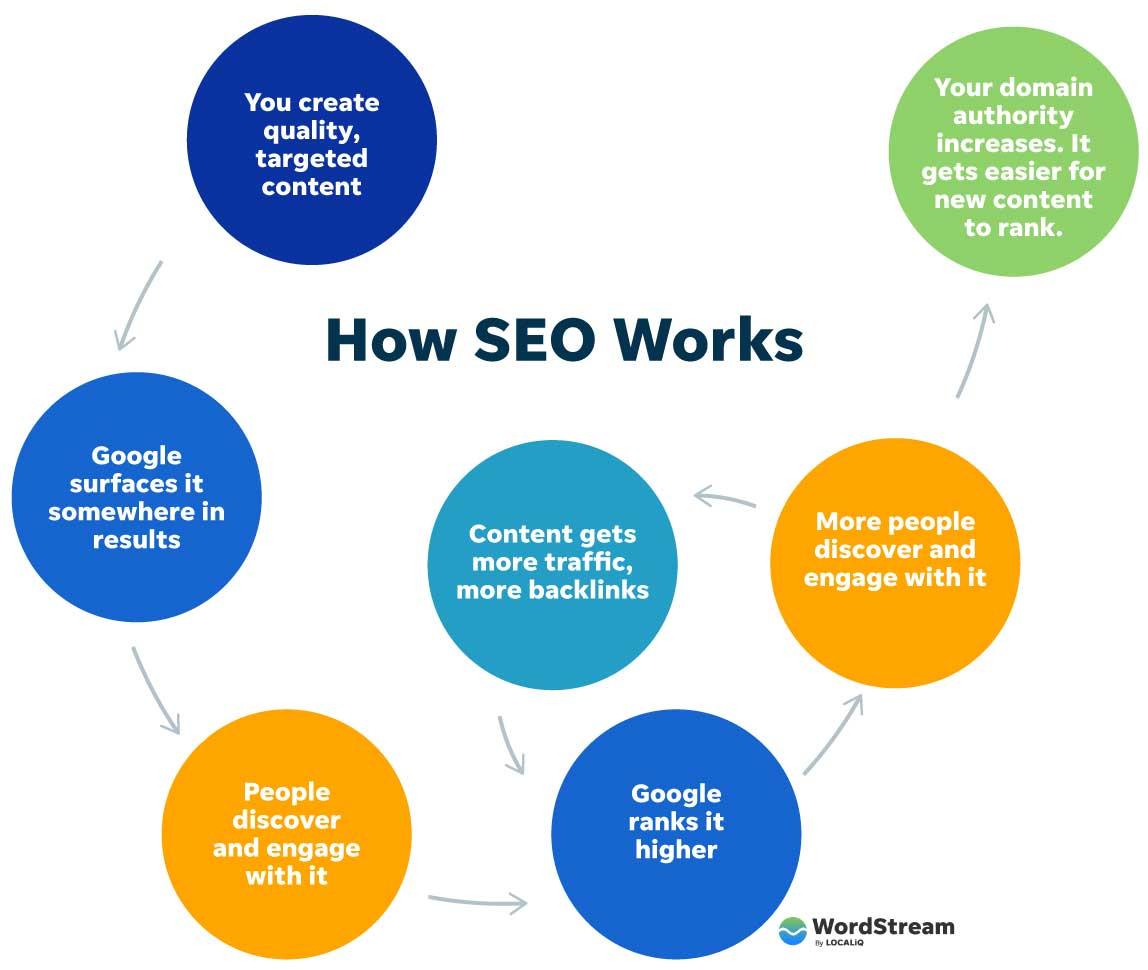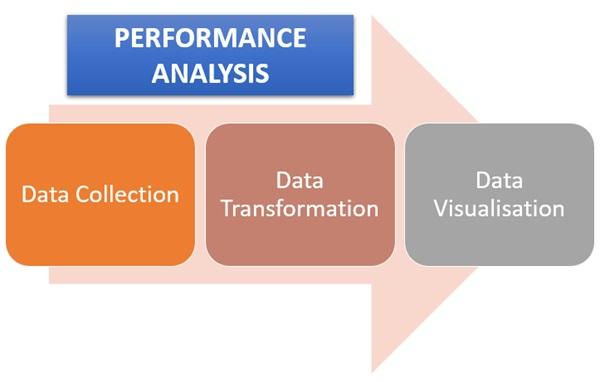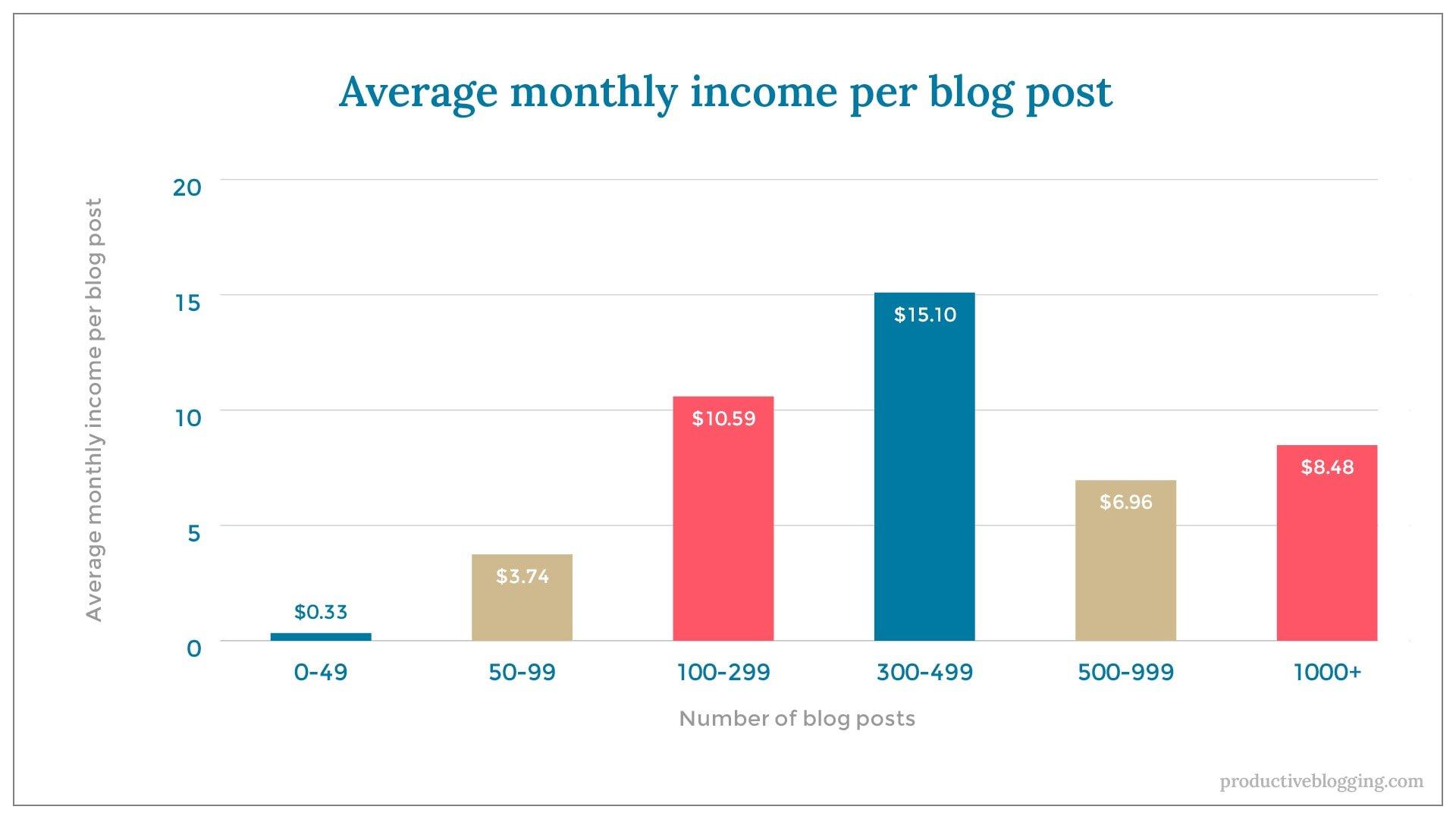Are you passionate about a particular topic and dreaming of turning that passion into profit? If so, you’re in the right place! Blogging isn’t just a creative outlet; it can also become a lucrative side hustle or even a full-time career. Whether you’re a seasoned writer or someone who’s just dipping their toes into the digital world, this ultimate guide is designed to walk you through the ins and outs of making money with a blog. From selecting the perfect niche to monetizing your content, we’ll explore effective strategies and practical tips that can help you transform your blog from a hobby into a money-making machine. So grab a cup of coffee, sit back, and let’s dive into the exciting journey of blogging for profit!
Understanding Your Niche and Audience Needs
To truly thrive in the blogging landscape, it’s essential to delve into the specifics of your niche and grasp what your audience is seeking. This understanding not only guides your content creation but also enhances your ability to monetize effectively. By catering to the precise needs of your audience, you create a loyal readership that is more likely to engage with your offerings.
Start by identifying your niche. Ask yourself the following:
- What are my passions and expertise?
- What topics resonate with my potential audience?
- What gaps exist in the current market?
By answering these questions, you can carve out a space for yourself that not only reflects your interests but also fulfills a demand. This dual focus is crucial for sustaining motivation and driving growth.
Once you’ve identified your niche, turn your attention to your audience. Conduct surveys, engage in social media discussions, or utilize tools like Google Analytics to gather insights on your readers’ preferences. Understanding their pain points, desires, and interests allows you to tailor your content to meet their needs effectively. Consider creating buyer personas to visualize your audience segments better.
| Audience Insights | Content Ideas |
|---|---|
| Age Group 18-25 | Trendy topics, social media strategies |
| Adults 26-35 | Career tips, financial advice |
| Parents 30-45 | Family activities, parenting hacks |
Moreover, consider the emotional triggers that resonate with your audience. Craft content that speaks to their aspirations and fears. Whether it’s a light-hearted take on a relatable struggle or a detailed guide that offers a solution, tapping into these emotions can significantly enhance engagement.
Ultimately, is an ongoing process. As trends evolve and new needs arise, staying attuned to these shifts will keep your blog relevant and profitable. Regularly revisit your strategies, adapt your content, and watch as your blog transforms into a go-to resource within your niche.

Creating High-Quality Content That Engages and Converts
When it comes to blogging, the quality of your content is paramount. High-quality content not only grabs attention but also builds trust with your audience, which is essential for converting readers into loyal customers. To create content that resonates, consider the following elements:
- Know Your Audience: Understanding who your readers are will help tailor your content to their interests and needs. Conduct surveys or engage with your audience on social media to gather insights.
- Provide Value: Focus on offering practical advice, tips, or unique insights that your audience can’t find elsewhere. Content that educates or solves problems is more likely to be shared and acted upon.
- Use Engaging Formats: Incorporate various formats like infographics, videos, and podcasts to keep your content dynamic. Diverse formats cater to different learning styles and preferences.
Additionally, the structure of your blog posts plays a crucial role in retaining reader interest. Utilize headings, subheadings, and bullet points to break up text and make it easier to digest. Here’s a simple table showcasing effective blog post structures:
| Structure Component | Description |
|---|---|
| Attention-Grabbing Title | Captures interest and encourages clicks. |
| Compelling Introduction | Briefly outlines the topic and its significance. |
| In-Depth Body | Provides valuable information, tips, and insights. |
| Engaging Conclusion | Summarizes key points and includes a strong call to action. |
Don’t forget the importance of SEO in your content strategy. By incorporating relevant keywords naturally into your posts, you enhance your visibility in search results. This not only drives traffic but also increases the chances of conversion. Tools like Yoast SEO for WordPress can help optimize your content effectively.
encourage interaction by inviting comments and feedback at the end of your posts. Creating a community around your blog can significantly boost engagement and foster a sense of belonging among your readers. The more they interact, the more likely they are to convert into loyal followers – and ultimately, customers.
Exploring Different Monetization Strategies for Your Blog
When it comes to monetizing your blog, the possibilities are as diverse as the topics you can cover. Each strategy has its own set of benefits and challenges, so it’s essential to find the approach that aligns with your content and audience.
One of the most popular methods is affiliate marketing. This involves promoting products or services and earning a commission for every sale made through your referral links. Consider writing detailed product reviews or creating comparison articles to naturally incorporate these links. Here are a few tips for successful affiliate marketing:
- Choose relevant products: Ensure that the products resonate with your audience’s interests.
- Be transparent: Disclose your affiliate relationships to build trust with your readers.
- Focus on quality: Promote products you genuinely believe in to maintain credibility.
Another effective strategy is offering premium content. This could include exclusive blog posts, e-books, or online courses that readers can purchase. To entice your audience, you might consider offering a few free samples or a sneak peek. Here’s how you can structure your premium offerings:
| Content Type | Description | Price Range |
|---|---|---|
| E-books | In-depth guides on specific topics. | $10 - $30 |
| Online Courses | Interactive lessons with video content. | $50 – $300 |
| Memberships | Exclusive access to a community or additional resources. | $5 - $25/month |
Don’t overlook the power of advertising. Platforms like Google AdSense allow you to earn money by displaying ads on your blog. While this requires you to have a steady flow of traffic, it can become a passive income stream over time. To optimize ad revenue:
- Choose the right placements: Test different ad placements to find the most effective spots.
- Monitor performance: Use analytics to track which ads perform best and adjust accordingly.
consider sponsorships and partnerships with brands that align with your blog’s niche. This could range from sponsored posts to social media promotions. Building relationships with brands can lead to lucrative collaborations, but make sure to choose sponsors that resonate with your audience to keep your content authentic.

Building an Effective Email List to Boost Revenue
Creating a solid email list is one of the most effective strategies to enhance your blog’s revenue potential. An engaged audience is much more likely to convert into paying customers, so building that list should be a top priority. Here are some actionable tips to kickstart your email marketing journey:
- Offer Value Upfront: The key to enticing visitors to subscribe is to offer something beneficial. Consider creating a free eBook, a checklist, or exclusive access to video content that aligns with your blog’s niche. This incentive will not only encourage sign-ups but also establish your authority in the field.
- Utilize Landing Pages: Craft dedicated landing pages that focus solely on email sign-ups. These pages should have a clear, compelling call to action, minimizing distractions to keep potential subscribers focused on signing up.
- Engage Through Content: Regularly sending out newsletters featuring valuable content, curated resources, or exclusive deals helps keep your audience engaged. The more they value your emails, the more likely they are to make purchases when you promote products or services.
Additionally, segmenting your email list can significantly boost your marketing effectiveness. By grouping subscribers based on their interests or behaviors, you can tailor your messaging to meet their specific needs, leading to higher engagement and conversion rates. Here’s a simple segmentation strategy:
| Segment | Description |
|---|---|
| New Subscribers | Send welcome emails and introductory content to build rapport. |
| Engaged Readers | Offer exclusive deals to those who frequently open and click your emails. |
| Inactive Subscribers | Win them back with re-engagement campaigns, offering special promotions. |
Lastly, leverage social proof to enhance credibility. Showcasing testimonials or success stories from followers can help reassure potential subscribers that they are making the right choice. Highlighting how others have benefited from your content can convert hesitant visitors into eager subscribers.
Leveraging Affiliate Marketing for Passive Income
Affiliate marketing is an excellent avenue for generating passive income, especially when integrated into your blogging strategy. By promoting products or services that resonate with your blog’s audience, you can earn commissions on sales without creating your own products. This creates a win-win scenario for both you and your readers, as they gain access to quality recommendations while you profit from their purchases.
To get started with affiliate marketing, consider the following steps:
- Choose the Right Affiliate Programs: Align yourself with programs that match your blog’s niche. Research options like Amazon Associates, ShareASale, or niche-specific programs that offer quality products your audience will appreciate.
- Create Valuable Content: Focus on writing high-quality blog posts that genuinely help your readers. Use product reviews, how-to guides, and comparison articles to seamlessly integrate affiliate links into your content.
- Be Transparent: Always disclose your affiliate relationships to maintain trust. Let your audience know that you may earn a commission if they purchase through your links.
- Leverage SEO: Optimize your blog posts for search engines to attract organic traffic. The more visitors you have, the higher your chances of conversions through affiliate links.
- Promote on Social Media: Share your blog content across social media platforms. Engage with your audience and drive traffic back to your blog, increasing your chances of affiliate sales.
To maximize your affiliate marketing efforts, consider creating a dedicated section on your blog where readers can easily find your recommended products. This can be in the form of a resources page or a series of curated lists. For example:
| Product Category | Recommended Product | Affiliate Link |
|---|---|---|
| Blogging Tools | Yoast SEO | Join Here |
| Web Hosting | Bluehost | Join Here |
| Email Marketing | Mailchimp | Join Here |
As your blog grows, consistently track your affiliate links’ performance to understand which products resonate most with your audience. Adjust your strategy accordingly to focus on high-performing items, increasing your potential for passive income. Remember, success in affiliate marketing doesn’t happen overnight; it requires dedication, continuous learning, and adaptation to trends.

Harnessing the Power of Sponsored Posts and Partnerships
One of the most effective strategies for monetizing your blog is through sponsored posts and partnerships. This approach allows you to collaborate with brands that align with your audience’s interests, creating content that adds value while also generating income. To get started, it’s vital to build a loyal readership. Brands want to connect with genuine audiences, so focus on establishing trust and engagement with your followers.
When reaching out to potential partners, be sure to highlight your blog’s unique selling points. Consider including the following in your pitch:
- Audience demographics: Who are your readers? What are their interests?
- Engagement metrics: Showcase your page views, social media followers, and interaction rates.
- Content style: Let them know your blog’s voice and how it can complement their brand.
Once you start securing partnerships, it’s essential to maintain transparency with your audience. When you publish a sponsored post, include a clear disclaimer indicating that the content is sponsored. This not only meets legal requirements but also builds trust with your readers. Authenticity is key; choose brands that resonate with your values and your audience’s preferences.
To maximize the effectiveness of sponsored content, consider integrating it creatively into your blog. Here’s a simple layout for presenting sponsored posts:
| Content Type | Examples | Benefits |
|---|---|---|
| Product Reviews | In-depth analysis of a product | Builds credibility; offers value |
| Tutorials | How-to guides featuring a product | Engages readers; demonstrates usage |
| Interviews | Conversations with brand representatives | Gives a personal touch; creates connection |
Incorporating sponsored posts and partnerships into your blogging strategy can significantly enhance your revenue streams. As you grow, don’t hesitate to negotiate rates and terms that reflect your worth. The more established your blog becomes, the more opportunities will come your way. Focus on creating high-quality content that resonates with both your audience and potential partners, and you’ll be well on your way to making your blog a profitable venture.

Utilizing Social Media to Drive Traffic and Increase Earnings
In today’s digital landscape, social media is an indispensable tool for bloggers looking to drive traffic and boost their earnings. With billions of active users across various platforms, leveraging these channels can significantly enhance your visibility and engagement. Start by identifying where your target audience spends their time—be it Facebook, Instagram, Twitter, or Pinterest—and tailor your strategy accordingly.
Engagement is Key: Simply sharing your blog posts isn’t enough. You need to engage with your audience. Respond to comments, ask questions, and create polls to foster community interaction. This not only builds trust but also encourages sharing, which can exponentially increase your reach.
Use Eye-Catching Visuals: Posts with compelling images or videos tend to capture attention more effectively. Consider creating infographics that summarize your blog’s key points or brief video clips that tease your latest content. Tools like Canva or Adobe Spark can help you design stunning visuals that resonate with your audience.
Content Diversification: Don’t limit yourself to just blog links. Share behind-the-scenes glimpses, personal anecdotes, or industry news related to your niche. This adds variety to your feed and keeps your audience engaged. Here’s a quick example of content types to consider:
| Content Type | Purpose |
|---|---|
| Blog Post Links | Drive traffic directly to your blog |
| Behind-the-Scenes | Build a personal connection |
| Polls/Questions | Encourage engagement and interaction |
| Infographics | Summarize information visually |
| Live Videos | Provide real-time interaction |
Utilize Hashtags Wisely: Incorporating relevant hashtags can expand your reach beyond your immediate followers. Research trending hashtags in your niche and include a mix of broad and specific tags to attract a diverse audience. Remember, using too many can dilute your message, so stick to a few well-chosen ones.
Lastly, consider running social media campaigns or contests that encourage user-generated content. This not only builds community but can also drive traffic back to your blog as participants share their experiences. With a strategic approach to social media, you can create a powerful funnel that directs traffic to your blog and boosts your earning potential.

Optimizing Your Blog for SEO to Attract More Visitors
To truly make your blog a magnet for visitors, it’s essential to implement effective SEO strategies. This not only increases your visibility but also enhances the overall user experience. Start by focusing on keyword research. Identify specific phrases that your target audience is searching for, and integrate these keywords naturally into your posts. Tools like Google Keyword Planner or SEMrush can be invaluable in this step. Remember, the goal is to blend these keywords into your content seamlessly, so it feels organic rather than forced.
Next, prioritize on-page SEO elements. Ensure that each blog post is equipped with the following:
- Compelling Titles: Create catchy titles that include your primary keyword.
- Meta Descriptions: Write concise and persuasive descriptions that entice clicks.
- Header Tags: Use H1 for your title and H2/H3 for subheadings to structure your content effectively.
- Alt Text for Images: This helps search engines understand your visuals and improves accessibility.
Don’t overlook the importance of internal linking. By linking related posts within your blog, you can keep visitors engaged longer and help search engines crawl your site more efficiently. This practice not only enhances your site’s authority but also provides readers with a more enriched experience. Consider creating a table to showcase related articles:
| Article Title | Date Published |
|---|---|
| How to Craft SEO-Friendly Content | January 2023 |
| 10 Tips for Increasing Blog Traffic | February 2023 |
| Monetize Your Blog: The Ultimate Guide | March 2023 |
Another crucial aspect is page speed and mobile optimization. With a significant amount of web traffic coming from mobile devices, ensure your blog is responsive and loads quickly. Tools like Google PageSpeed Insights can help you assess and improve your site’s performance. A fast-loading, mobile-friendly blog not only enhances user experience but also contributes positively to your SEO rankings.
Lastly, don’t underestimate the power of high-quality content. Regularly update your blog with fresh, informative, and engaging articles. Quality content encourages backlinks, shares, and return visitors, all of which are integral to boosting your SEO efforts. Aim to create posts that resonate with your audience, offering solutions to their problems or answers to their questions. By doing so, you’ll establish yourself as an authority in your niche, attracting even more visitors to your blog.

Analyzing Your Performance and Adjusting Your Strategy
Monitoring your blog’s performance is essential for growth and success. By analyzing key metrics, you can identify what’s working and what needs improvement. Start by diving into your blog’s analytics to understand visitor behavior. You should focus on:
- Traffic Sources: Where are your visitors coming from? Knowing whether they’re arriving via search engines, social media, or referrals can help you refine your promotional strategies.
- Engagement Metrics: Look at how long visitors stay on your site and which posts attract the most attention. High bounce rates might indicate that your content isn’t resonating as intended.
- Conversion Rates: Whether your goal is to sell a product or build an email list, tracking conversion rates will allow you to see how effectively your blog turns readers into customers or subscribers.
Once you’ve gathered this data, it’s time to adjust your strategy. Here are some actionable steps:
- Content Optimization: If certain topics perform better, consider creating more content that aligns with those interests. Use keywords that drive traffic while ensuring the content remains engaging and informative.
- SEO Improvements: Regularly update your SEO practices. If you notice certain keywords driving traffic, optimize existing content to target these terms more effectively.
- Experiment with Formats: If you predominantly use text, try incorporating videos, infographics, or podcasts to cater to different audience preferences. This can enhance engagement.
To visualize your progress and strategy adjustments, you can use a simple table:
| Metric | Current Status | Target Goal | Action Plan |
|---|---|---|---|
| Monthly Visitors | 5,000 | 10,000 | Increase social media promotions |
| Average Session Duration | 1:30 min | 3:00 min | Implement engaging multimedia content |
| Conversion Rate | 2% | 5% | Optimize call-to-action buttons |
By continuously analyzing your blog’s performance and making thoughtful adjustments, you can create a dynamic environment that fosters growth and revenue. Always keep an eye on your metrics and be open to experimenting with new strategies to find what truly resonates with your audience.

Staying Committed and Continuing to Grow Your Blog Revenue
Building a successful blog that generates revenue is not a sprint; it’s a marathon. To truly make your blog profitable, you need to stay committed to your goals and continuously seek growth opportunities. Here are some strategies to help you remain focused and elevate your blog’s earning potential:
- Set Clear Goals: Define what success looks like for you. Whether it’s a specific monthly income or a certain number of readers, having clear objectives will keep you motivated.
- Invest in Learning: The blogging landscape is always changing. Consider enrolling in online courses, attending webinars, and reading industry-related books to stay updated with the latest trends and strategies.
- Diversify Your Income Streams: Relying on a single source of revenue can be risky. Explore different monetization methods such as affiliate marketing, sponsored posts, selling digital products, and offering consulting services.
- Engage with Your Audience: Understanding your audience is key to improving your content and increasing revenue. Use surveys, comments, and social media interactions to gather feedback and adapt your strategies accordingly.
Another effective way to boost your blog’s growth is to analyze your performance regularly. Use analytics tools to track your traffic, engagement rates, and revenue streams. This data will help you identify what’s working and what needs improvement. You can create a simple table to visualize your progress:
| Month | Traffic | Revenue | Key Insights |
|---|---|---|---|
| January | 1,000 | $200 | Content strategy improved engagement |
| February | 1,500 | $300 | Successful affiliate campaign launched |
| March | 2,000 | $450 | New product launch exceeded expectations |
Additionally, networking with other bloggers can provide new opportunities and ideas. Collaborate on projects, guest post on each other’s sites, or simply share insights. Building relationships within the blogging community can lead to beneficial partnerships that enhance your revenue.
Lastly, remember that consistency is key. Regularly publish high-quality content, promote it on social media, and engage with your followers. The more value you provide, the more likely your audience will trust you and your recommendations, leading to increased revenue.
Frequently Asked Questions (FAQ)
Q&A: How to Make Money with a Blog? (Ultimate Guide)
Q: Can I really make money blogging?
A: Absolutely! Many people have turned their blogs into lucrative businesses. Whether you’re looking to earn a side income or build a full-time career, blogging can be a rewarding platform. It takes time and effort, but with the right strategies, you can monetize your passion effectively.
Q: What are the initial steps I should take to start a blog?
A: First things first, choose a niche that you’re passionate about and that has a potential audience. Then, select a blogging platform—WordPress is a popular choice for its versatility. Don’t forget to purchase a domain name that reflects your blog’s theme and get a reliable hosting service.
Q: How do I attract readers to my blog?
A: Creating high-quality, engaging content is key! Use SEO strategies to optimize your posts for search engines, share your articles on social media, and engage with other bloggers in your niche. Building an email list is also crucial; it helps you connect with your audience directly and keep them coming back for more.
Q: What are the best ways to monetize my blog?
A: There are several effective methods! You can try affiliate marketing, where you promote products and earn a commission on sales. Sponsored posts are another option—brands pay you to write about their products. Additionally, consider selling your own products or services, like e-books or online courses. Displaying ads with Google AdSense is a simple way to start generating income too.
Q: How do I find affiliate programs to join?
A: There are countless affiliate programs out there! Start by researching products related to your blog niche. Websites like Amazon Associates, ShareASale, and CJ Affiliate are great places to find affiliate opportunities. Remember to choose products you genuinely believe in to maintain authenticity with your audience.
Q: Is it necessary to have a large audience to make money?
A: Not necessarily! While a larger audience can increase your earning potential, it’s all about engagement and targeting the right audience. A smaller, niche audience that trusts your recommendations can be just as valuable, especially for affiliate marketing and sponsored content.
Q: How can I keep my readers engaged and coming back?
A: Consistency is key! Establish a regular posting schedule so your audience knows when to expect new content. Engage with them by responding to comments, asking for feedback, and encouraging discussion. Creating valuable content that addresses their needs and interests will keep them coming back for more.
Q: What mistakes should I avoid when trying to monetize my blog?
A: One common pitfall is focusing too much on making money too quickly. Building a successful blog takes time, so prioritize creating great content and growing your audience first. Also, avoid promoting too many products at once, as it can overwhelm your readers. Stay authentic and only promote what you truly believe in.
Q: How long will it take to start making money from my blog?
A: The timeline can vary widely. Some bloggers start seeing income within a few months, while others may take a year or more. It all depends on your niche, the effort you put in, and how well you implement monetization strategies. Patience and persistence are key!
Q: Any final tips for aspiring bloggers?
A: Absolutely! Stay passionate about your topic, be patient with your progress, and don’t be afraid to invest in your blog—whether that’s through learning new skills, purchasing tools, or hiring help when needed. Remember, it’s a journey; enjoy the process and watch your efforts turn into success!
With the right mindset and dedication, you’re on your way to transforming your blog into a money-making venture. So, what are you waiting for? Start your blogging journey today!
Key Takeaways
As we wrap up our ultimate guide on how to make money with a blog, remember that the journey to monetization is just that—a journey. It takes time, effort, and a sprinkle of creativity, but the rewards can be incredible. Whether you’re looking to build a side hustle or create a full-time income, the strategies we’ve explored here are your stepping stones.
So, what are you waiting for? Start implementing these tips today! Experiment with different monetization methods, engage with your audience, and keep honing your craft. Every successful blogger started where you are now, and with persistence and passion, you can turn your blog into a money-making machine.
If you found this guide helpful, don’t hesitate to share it with fellow aspiring bloggers and start a conversation in the comments below. We’d love to hear your thoughts, experiences, or any questions you might have. Remember, the blogging community thrives on collaboration—so let’s lift each other up on this exciting journey!
Happy blogging, and here’s to your success! 🌟


